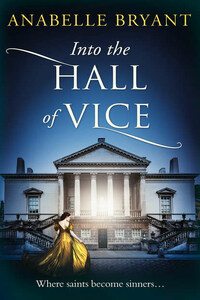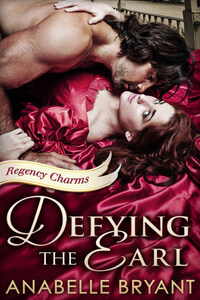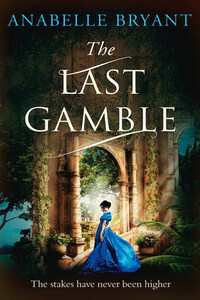When Crispin Daventry fled Londonâs most notorious gaming hell, the Underworld, with a broken heart and empty pockets, he wasnât sure he would ever return.
But after a spell of debauchery in Italy with his new friend Count Este, he believes he has finally cast aside all thoughts of romance and is ready to pay back his debts, seeking his own unique revenge on the venue that bankrupted him.
So when an usual stowaway in the shape of Lady Amanda Beasley appears on his ship bound for home, life at sea suddenly becomes far more tempestuous. Concealing a young woman travelling alone is both improper and inconvenient, and a complication Crispin could happily do without.
Duty-bound by his gentlemanâs upbringing, he agrees to protect her until they are back on English soil. But will a return to the capital of sin turn this damsel in distress into something more?
ANABELLE BRYANT is happy to grab her suitcase if it ensures a new adventure. She finds endless inspiration in travel, especially imaginary jaunts into romantic Regency England, a far cry from her home in New Jersey. Instead, her characters live out her daydreams because, really, who wouldnât want to dance with a handsome duke or kiss a wicked earl? A firm believer in romance, Anabelle knows sometimes life doesnât provide a happily ever after, but her novels always do. Visit her website at AnabelleBryant.com
[This story is dedicated to anyone who wishes to begin again, recreate themselves, find a new life within the old and aspire to be happy.
To my readers, thank you for your support and for spending time with my characters. I appreciate all of you and enjoy our conversations online.
And to my mom, most of all. ]
Chapter One
Bastard was a label heâd never own.
His blood ran pure blue.
And as a wealthy, revered paradigm of the English gentleman, heir to a barony, Lord Crispin Daventry was far better than his current self-destructive behaviour, the like spurred from a desire for distraction and instinctual escape of loathing. His indulgent routine of inebriation, debauchery and reckless gambling masked a quelling desire to smother emotion, blot out bitter memory, and at last forget, if only for one night.
Because sheâd chosen a bastard.
He stared out of the window of his spacious apartments overlooking Canale de Grazia and watched the gleaming rays of sunrise shimmer across the water in glorious shades of marmalade and gold. Heat carried on the ocean breeze to caress his jaw, a gesture so ephemeral one believed the dawn hour in Venice possessed enchantment unknown anywhere else on Earth. As was habit, he witnessed the dayâs awakening and considered his options; how to become a better man, return to London and repair his tarnished reputation, all too quick to recognize the foolish litany as a composition of deceit and reassurances.
With a smirk, he reached across the gilt trestle table for a glass of merlot, abandoned half full during last nightâs amusements. His residence housed the culmination of each eveningâs conquests, his popularity within the cityâs fast set somewhat legendary. He laboured to perpetuate the illusion lest anyone suspect he was not as he seemed and the masquerade of vengeful rogue, scorned lover and unrepentant aristocrat be destroyed. Somehow, heâd managed to grow comfortable within that particular lie.
In one manner, heâd become what sheâd wanted. A bastard. For no parent would wish him for a son, his transformation likely unrecognizable to his own mother, their ancestral relations decorous, straight-laced and, above all else, proper. This contrast, thrown against the local rakes who womanized and purported an ostentatious reputation of scandalous activity, granted him liberties. For while he indulged in dishonourable habits here in Venice, by being of golden English birth no one kept watch on his behaviour. Italians were generous with their admiration and stingy with opinion.
His thoughts moved to his closest comrade, Antonio Ferrisimo, Count of Este. Were it not for their fast friendship, Crispin would never have found his place among Venetian society. Ferris provided a loyal, if somewhat reckless, alliance, and was the one person he would despair at leaving when he finally returned to England.
With the help of the count, Crispin put forth a reputation soon multiplied by the masses, as a man outrageously wealthy and determined to win at any cost. Heâd ruined men, caused women to beg, and left a trail of broken hearts and empty purses in his wake. He wasnât an ordinary aristocrat in need of amusement, but an elite gambler, one without a heart and therefore unstoppable, as he would feel the tug of risk in every wager and ignore the momentary fright some men knew when in over their head. Unfortunately, this portrayal was mostly fiction.












